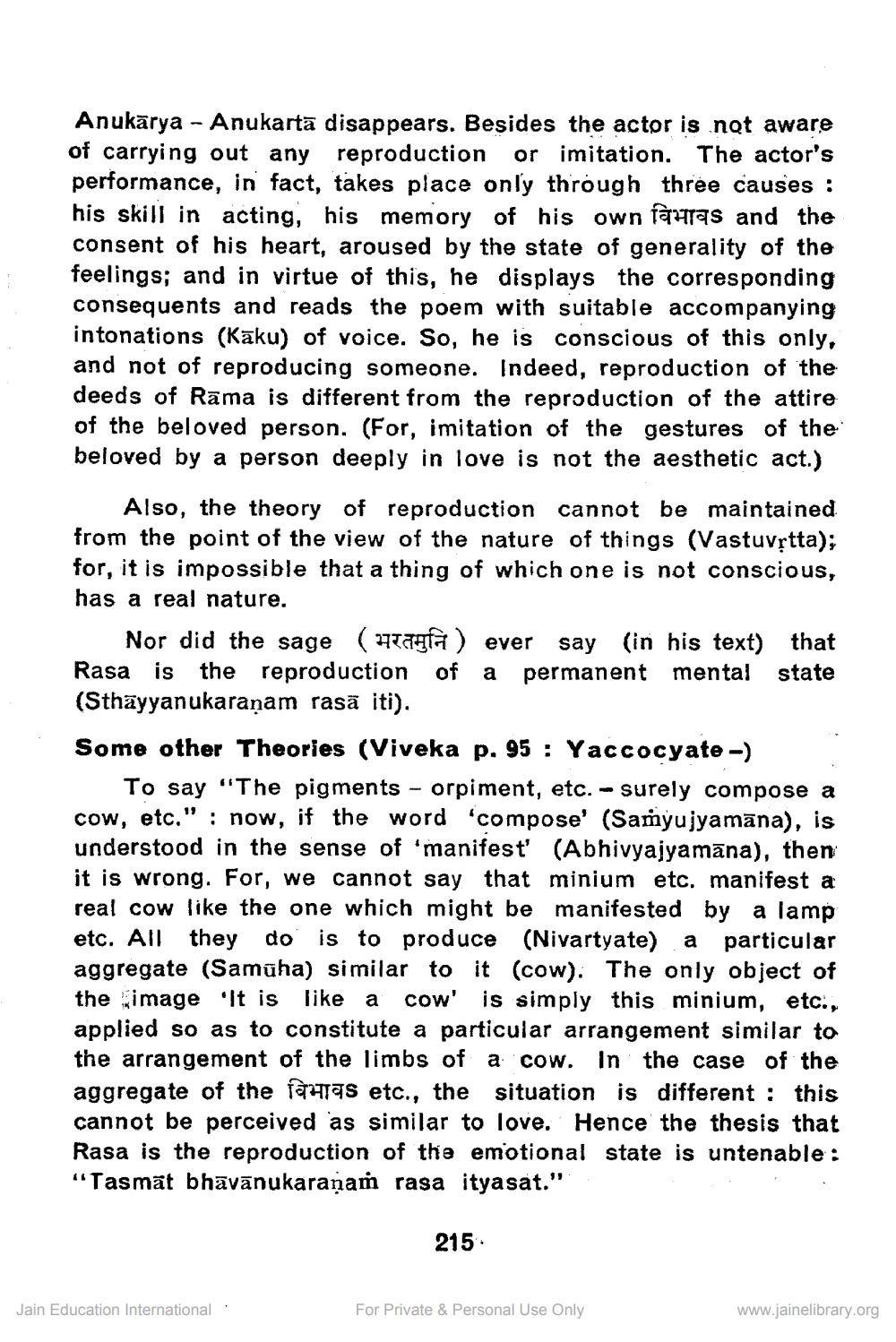________________
Anukarya - Anukarta disappears. Besides the actor is not aware of carrying out any reproduction or imitation. The actor's performance, in fact, takes place only through three causes : his skill in acting, his memory of his own faras and the consent of his heart, aroused by the state of generality of the feelings; and in virtue of this, he displays the corresponding consequents and reads the poem with suitable accompanying intonations (Kaku) of voice. So, he is conscious of this only, and not of reproducing someone. Indeed, reproduction of the deeds of Rama is different from the reproduction of the attire of the beloved person. (For, imitation of the gestures of the beloved by a person deeply in love is not the aesthetic act.)
Also, the theory of reproduction cannot be maintained from the point of the view of the nature of things (Vastuvṛtta); for, it is impossible that a thing of which one is not conscious, has a real nature.
Nor did the sage (af) ever say (in his text) that Rasa is the reproduction of a permanent mental state (Sthayyanukaraṇam rasa iti).
Some other Theories (Viveka p. 95: Yaccocyate -)
To say "The pigments orpiment, etc. surely compose a cow, etc." now, if the word 'compose' (Samyujyamāna), is understood in the sense of 'manifest' (Abhivyajyamāna), then it is wrong. For, we cannot say that minium etc. manifest a real cow like the one which might be manifested by a lamp etc. All they do is to produce (Nivartyate) a particular aggregate (Samūha) similar to it (cow). The only object of the image 'It is like a cow' is simply this minium, etc., applied so as to constitute a particular arrangement similar to the arrangement of the limbs of a cow. In the case of the aggregate of the faas etc., the situation is different : this cannot be perceived as similar to love. Hence the thesis that Rasa is the reproduction of the emotional state is untenable: "Tasmat bhāvānukaraṇaṁ rasa ityasat."
Jain Education International
215**
For Private & Personal Use Only
-
www.jainelibrary.org




